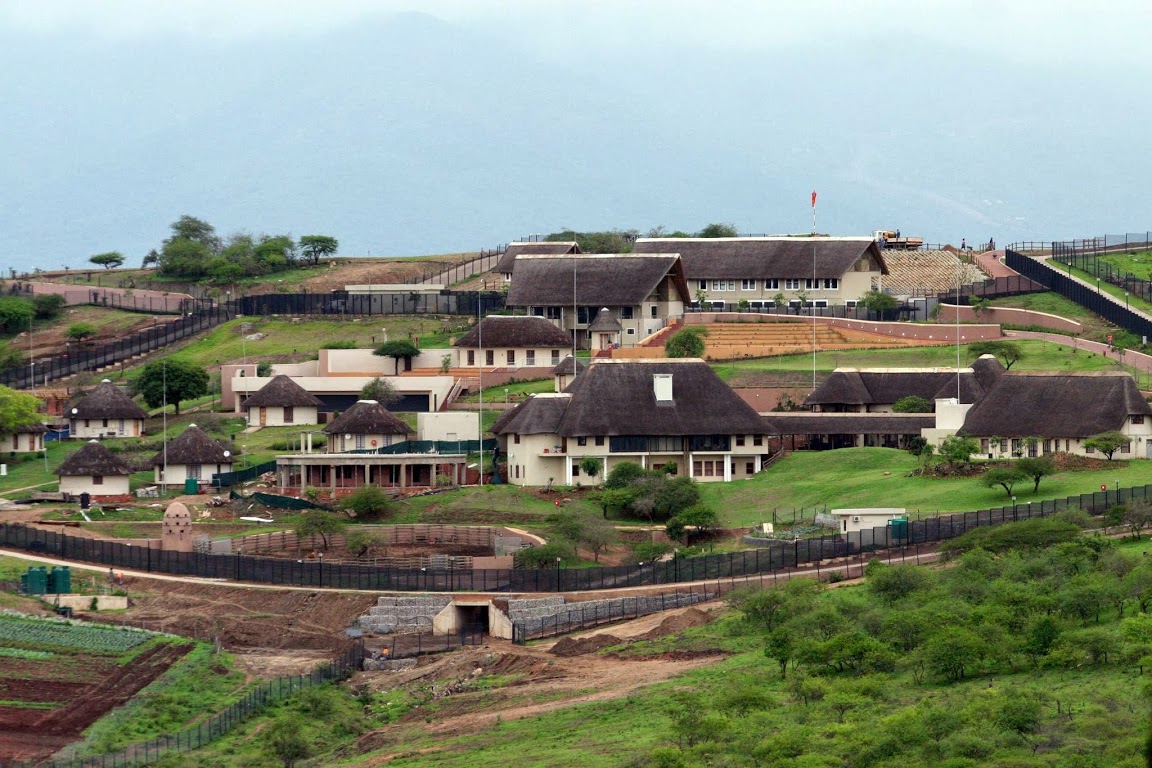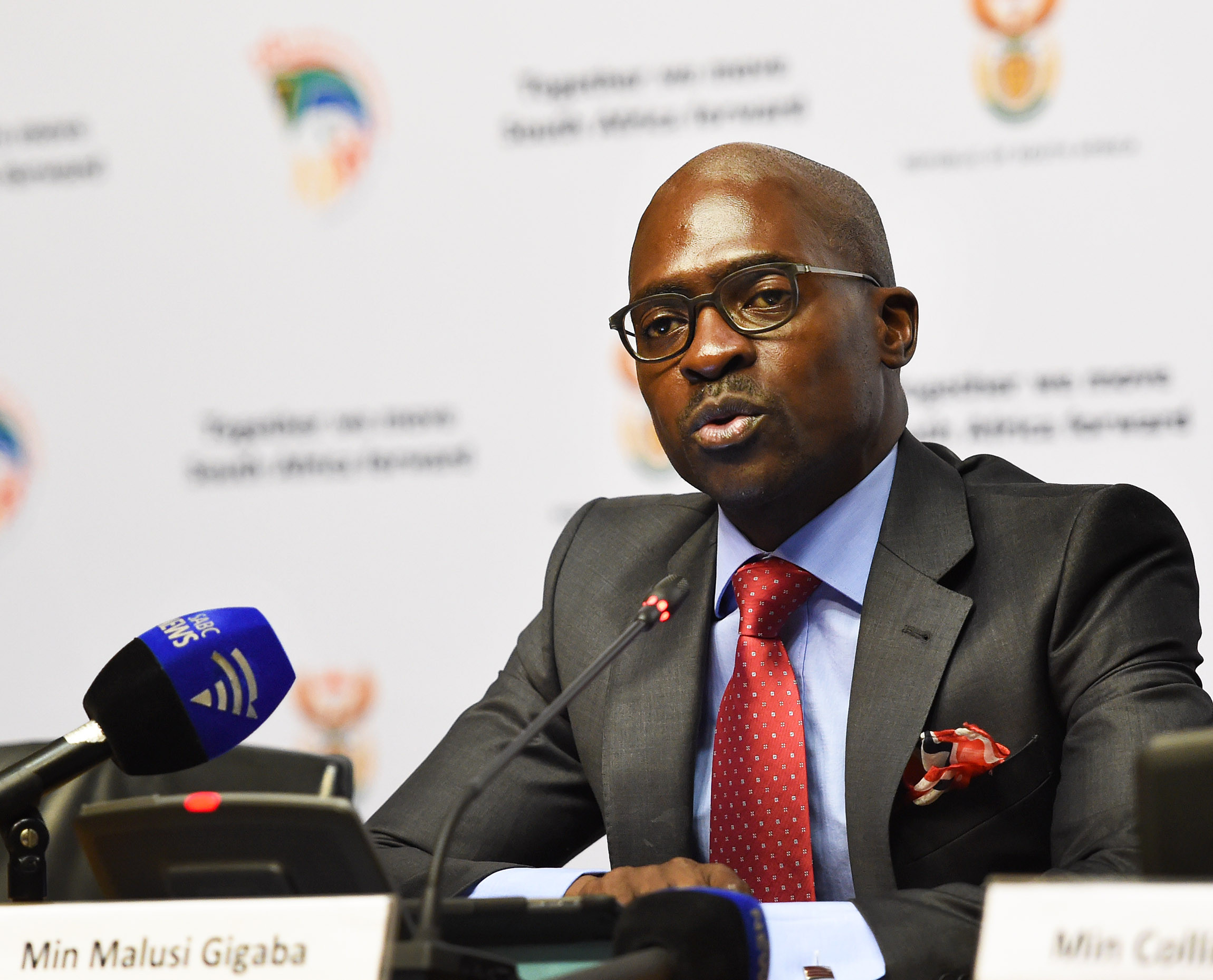
Imagine if, as president, George W. Bush diverted $23 million in public funds to improve his ranch in Midland, Texas.![]()
Imagine, further, that after a government ruling to reimburse the state treasury for those funds, it took a Supreme Court ruling to force Bush to acknowledge the graft and apologize. That, in essence, is what has happened in South Africa, where years of graft and corruption have caught up with Jacob Zuma, the two-term president and leader of the African National Congress (ANC).
At the end of last week, South Africa’s constitutional court ruled that Zuma violated the country’s constitution in refusing to yield to the findings of a public protector that he should pay back much of those amounts spent to upgrade his Nkandla estate in his home province of KwaZulu-Natal. Zuma and his associates conjured risible explanations for the spending — for example, a magnificent swimming pool was rationalized as a ‘fire pool’ to provide a reservoir of water in case of emergency.
* * * * *
RELATED: Even with victory assured, is the ANC’s future at risk?
* * * * *
South Africa’s public prosecutor disagreed and, after Zuma refused to heed that decision, the constitutional court disagreed as well. Zuma promptly took to national television to apologize, agreeing that he would, at long last, repay the South African treasury. Though opposition parties have called for Zuma’s impeachment, the ANC’s massive parliamentary majority makes that an unlikely possibility.
Set to step down in 2019, the 73-year-old Zuma is no stranger to controversy. He came to power in 2008 as a bitter enemy of then-president Thabo Mbeki, though even then he was under various ethics clouds, including a sensational rape trial that ended in 2006 (he was ultimately acquitted of the charges). Zuma’s rise meant that power would shift from the Xhosa power base of Mandela and Mbeki, for the first time in post-apartheid South Africa, to Zuma’s own Zulu power base. That, in turn, meant an entirely new set of Zulu elites within the ANC looking for their share of party patronage and the other benefits of power. The excesses of Nkandla epitomize the degree of impunity of ANC officials in the Zuma era.
But it’s not just Nkandla.
It’s Zuma’s web of patronage, from the despised Gupta family to a network of tribal Zulu leaders that have boosted Zuma’s career, that have increase the pace of corruption in South Africa. It was his willingness to deploy lethal fire against striking miners at Marikana in 2012 and his hostility to students protesting over higher tuition fees, both of which strained relations between the ANC and the all-important Congress of South African Trade Unions (COSATU). It was Zuma’s attempt to install a more pliant finance minister (ultimately, Zuma restored Pravin Gordhan, nearly as respected as much as Trevor Manuel, finance minister from 1996 to 2009).
The willingness of the constitutional court to stand up to Zuma, including its chief justice Mogoeng Mogoeng, himself a Zuma appointee, is a sign that South Africa’s young democracy is still functioning with at least some of the checks and balances that mature democracies require.
South Africa remains, more or less, a one-party country. The Democratic Alliance (DA), the chief opposition party has made little gain among voters outside Western Cape province and its white-heavy leadership, fairly or unfairly, is mistrusted by many black South Africans. The left-wing Economic Freedom Fighters (EFF), a near-demagogic splinter group from the ANC headed by Julius Malema, a one-time Zuma protege, looks even less likely to challenge the ANC.
Nevertheless, voters are increasingly frustrated with the ANC leadership after decades of mismanagement and corruption that dates back to Mandela’s hands-off approach when he served as president in the 1990s, the failures of the Mbeki era (most notably in his HIV/AIDS denialism and attempts to cling to power) and the even deeper failures of the Zuma era (deteriorating economic policy and an even more corrupt patronage state). The worst of the corruption might end when Zuma leaves office. But the rot goes far deeper, in some ways to the very beginning of the ANC’s time in office.

Though the next election is in 2019, ANC elites will elect a new leader a year earlier in 2017, and it will be essential for the post-Zuma ANC to find a way to revitalize itself. Speculation rests chiefly on Cyril Ramaphosa, who returned to government in 2014 as Zuma’s deputy president after more than a decade in the wilderness. Part of Mandela’s vanguard of activists who helped negotiate the founding of the post-apartheid South African state, Ramaphosa (a former leader of the National Union of Mineworkers) once hoped to succeed Mandela in the presidency. Mbeki, with a stronger base among the Xhosa ethnic group, edged him out of power altogether, and Ramaphosa spent the Mbeki years in the private sector. Though he’s the frontrunner (at least on paper) to succeed Zuma, his lack of either a Xhosa or Zulu power base could again doom his chances.
Moreover, even if he does win, he’ll be 66 years old by the time the next election arrives. If Ramaphosa holds the presidency for two terms, the same ‘1994’ generation will essentially still be in power in the year 2029. ANC secretary-general Gwede Mantashe or or Baleka Mbete, ANC chairperson and speaker of South Africa’s national assembly, could emerge as consensus alternatives. Rising star Malusi Gigaba, the popular 44-year old promoted to minister of home affairs in 2014 — and like Zuma, a Zulu — could well leapfrog Ramaphosa as well.
Personality aside, however, it’s not clear that the ANC, even with a fresh leader, is capable of winning back the hearts and minds of voters. Perhaps the best outcome would be the ANC’s splintering into a more genuinely competitive two-party or multi-party system — especially if those splits fall on policy or ideology lines, and not on lines of ethnic group and patronage.